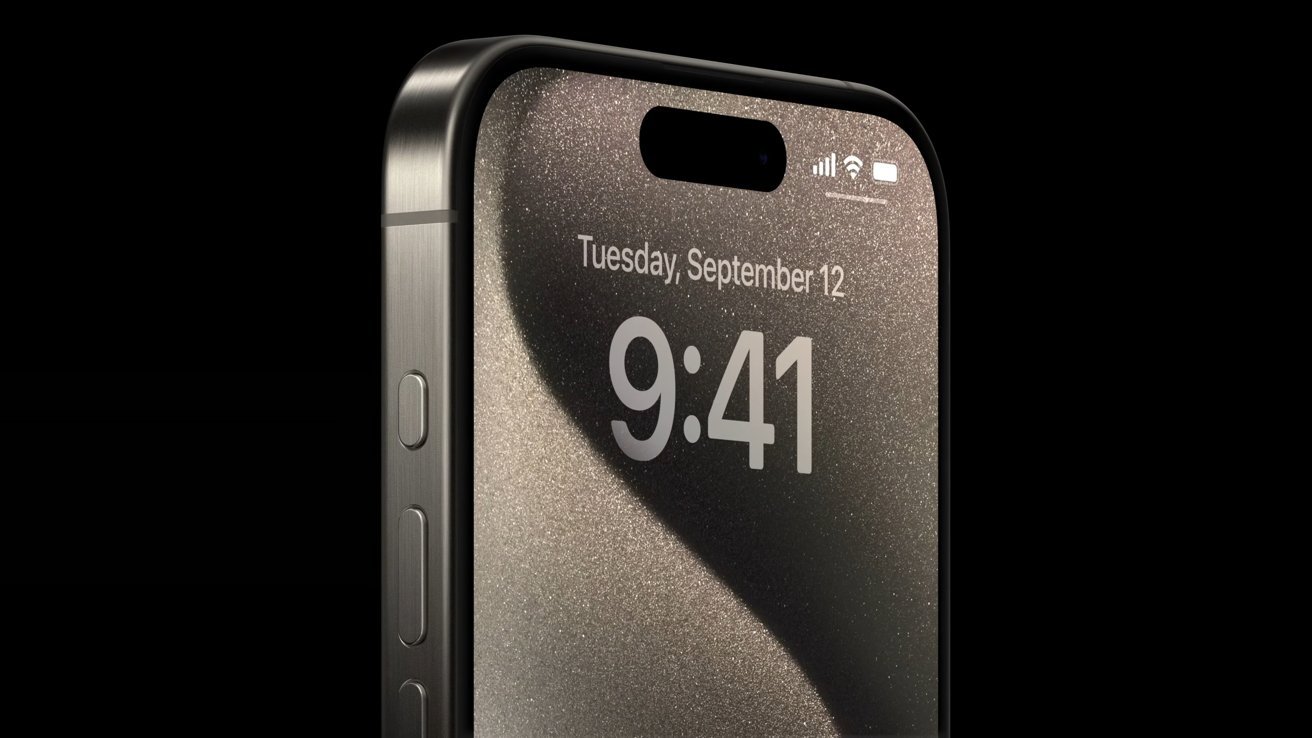Apple is using a new denser form of memory for the first time in its iPhones, with a teardown discovering the use of Micron's new ultra-dense D1b LPDDR5 DRAM chips in the iPhone 15 Pro.
As well as advances in features, the march of technology also results in smaller components over time. For the iPhone 15 Pro models, which already have a slightly smaller footprint than the previous year, it seems the memory inside the smartphones is also shrinking in size.
The teardown by TechInsights of an iPhone 15 Pro uncovered a Micron D1b LPDDR5 16GB DRAM chip, using the Y52P die. The use of the D1b DRAM technology results in a denser chip.
Denser memory chip technologies, much like processors, allows for more to be packed into a smaller space, meaning that chips can be made with the same capabilities as older generations in a shrunken-down form factor. It can also allow for more elaborate chip designs to be created within a similar footprint.
For companies like Apple, a denser chip means they can put more memory into a device like an iPhone without sacrificing mainboard space or internal capacity. It also means that space can be saved, which can be employed for other things like more battery capacity or other chips.
Micron's D1b DRAM technology departs from the Extreme Ultraviolet Lithography (EUVL) technique, used by competitors Samsung and SK Hynix and a core technology for going to sub-15-nanometer levels. Micron has successfully manufactured D1z, D1a, and D1b chips without EUVL, which the report deems "nothing short of impressive."
When Micron announced its D1b LPDDR5X was shipping samples to smartphone manufacturers in November 2022, it claimed speeds of up to 8.5Gbps were possible. For a 16Gb-per-die capacity, the node also provided a 35% bit density improvement and a 15% power efficiency improvement over its previous node.
 Malcolm Owen
Malcolm Owen
![Micron's D1b memory found in the iPhone 15 Pro [TechInsights]](https://photos5.appleinsider.com/gallery/56527-114857-micron-d1-beta-package-large-xl.jpg)







-m.jpg)






 Brian Patterson
Brian Patterson
 Charles Martin
Charles Martin



 William Gallagher
William Gallagher
 Christine McKee
Christine McKee
 Marko Zivkovic
Marko Zivkovic









18 Comments
Don't need faster chips, denser memory chips, better cameras or higher def screens. What's there now is more than good enough. What I need, and what most of us need, is better battery life.